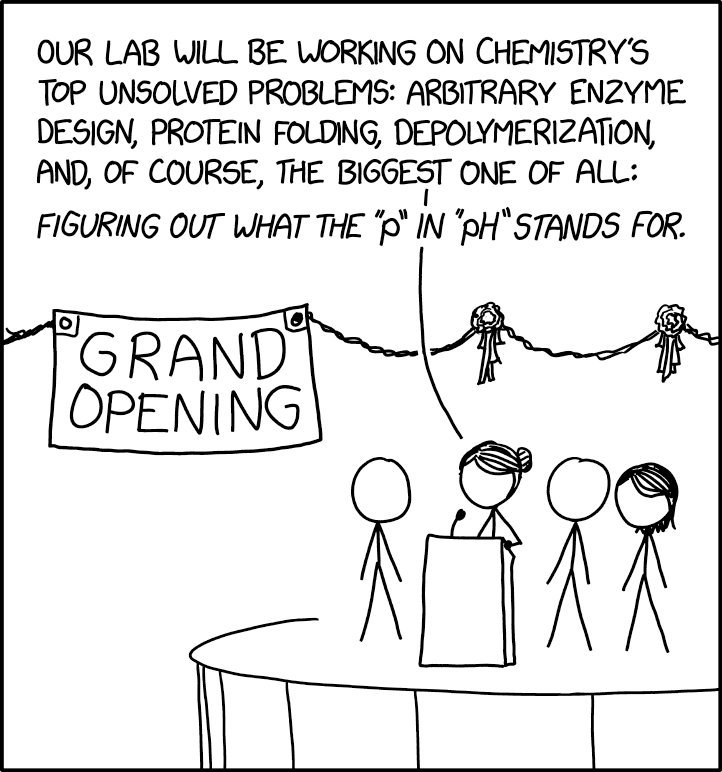They told me at school that ‘p’ meant ‘negative log’. So ‘pH’ means ‘the negative log of the concentration of Hydrogen ions in moles/litre’.
pH 1 is 1 x 10^-1^ (strong acid)
pH 7 is 1 x 10^-7^ (neutral)
pH 14 is 1 x 10^-14^ (alkaline)
(Chemistry was a long time ago, though)
